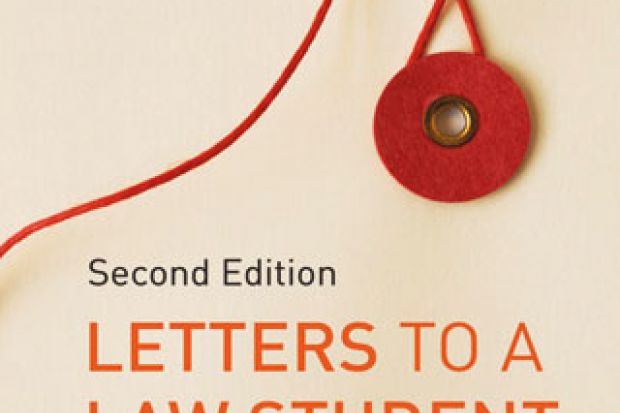Chris Barton, emeritus professor of family law, Staffordshire University, is reading Nicholas J. McBride’s Letters to a Law Student (Pearson, 2014). “In McBride’s world, students have no jobs, partners or children. He has no idea of part-time students – and he certainly has no idea of those on the graduate diploma in law, on which course he has clearly never taught. Had he done so, he would not have described it as a ‘crash course in the core legal subjects’. And two-year degrees, similarly sniffed at here, involve as much study as the degrees comprising about six months a year for three years, as favoured at certain universities.”

Kathryn Ecclestone, professor of education, University of Sheffield, is reading Ansgar Allen’s Benign Violence: Education in and Beyond the Age of Reason (Palgrave Macmillan, 2014). “A beautifully written, quietly furious genealogical analysis of how educational meritocracy is a romantic myth. Allen challenges liberal-left hopes for more progressive ‘holistic’ assessments as delusions, rooted in 19th-century eugenic aspirations for increasingly fine-tuned measures of human subjects’ outer and inner lives. His trenchant attacks on academics’ bovine compliance in audit measures and regimented fads are too close for comfort.”

Michael King, emeritus professor in the School of Law, University of Reading, is reading Veronica Rodriguez-Blanco’s Law and Authority under the Guise of the Good (Bloomsbury, 2014). “Why do people accept law’s authority rather than following their own desires? What leads judges and legislators to expect that their laws will be obeyed? ‘Legal science’ tries to explain such phenomena by subjecting them to rigorous philosophical analysis. The results, as detailed here, are both intricate and sophisticated. Yes, an arcane and self-referential exercise perhaps, but nonetheless weirdly fascinating.”

A. W. Purdue, visiting professor in history, University of Northumbria, is reading John Sadler’s Blood on the Wave: Scottish Sea Battles (Birlinn, 2010). “Long before there was a Scotland, there were sea battles along its coast: Roman triremes supported Agricola’s armies, there were naval battles between Picts and Scots and incursions by Vikings in longships. In this fascinating study, Sadler moves from early history to battles between English and Scottish fleets and on to an assessment of Scotland’s contribution to the Royal Navy: not just admirals and seamen, but in the provision of the bases of Scapa Flow, Rosyth and Faslane.”

Sharon Wheeler, visiting lecturer in journalism, Birmingham City University, is reading Josh Lanyon’s Stranger on the Shore (Carina Press, 2014). “Josh Lanyon used to write gay crime fiction. Now it’s labelled m/m romance – à la Harlequin (but with more bonking), usually written by women. Journalist Griff lands his dream job – writing a book about the disappearance of a tycoon’s grandson 20 years ago. And naturally he spars with a handsome lawyer. The plot’s tidy if predictable, which sums up the book.”

